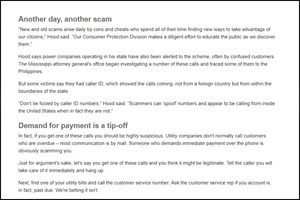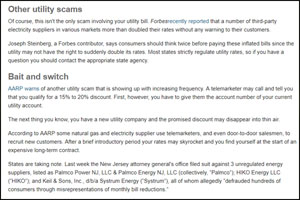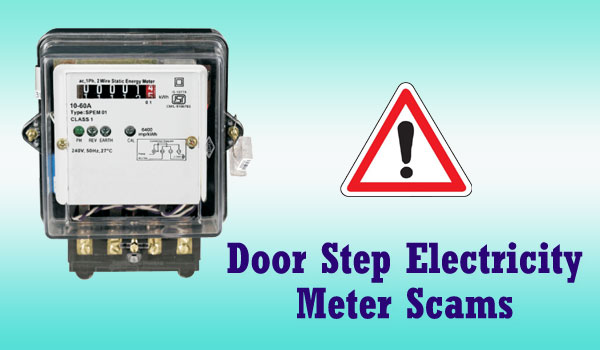Door Step Electricity Meter Scams
While there are several dependable marketing people out there who approach you with products or services at your doorstep, there are scammers, on the other hand, who try to deceive you. Seeing that doorstep scammers are dynamic and persuasive, it is often easy to fall victim. Doorstep electricity meter scams are on the rise—be on your guard. With more than thousands in the city conned by the cheaper energy scam, it is time to act wisely. In view of the fact that the con artists of these electricity scams are assumed to have associations with serious and organized criminal activity, electricity companies are urging their customers not to get involved or fall prey to them.
How does it work?


How to outsmart?
To protect yourself from such an act that is so nerve-wracking, you need to buy top-ups only from official outlets, and always remember—no electricity company offers top-ups on the doorstep. Always get a receipt and look out for the particulars; credit is transferred to your meter when you subsequently insert your key or card. Consider setting up a utility password with your gas and electricity providers so that you can identify genuine meter readers from the false ones. In order to activate this service, call up your utility company and ask for details regarding this—they might need to put you on their Priority Services Register, which will involve a small charge.
If someone has knocked on your door offering you cut-price electricity for cash, think twice and confirm it with your electricity company. If you've been the victim of an electricity scam, report it to the local authorities and to the FTC—they may be able to track down the fraudster. Don't hesitate to report the scam; if you report it, it may help prevent others from experiencing the same thing.
Doorstep electricity meter scams involve deceptive individuals who falsely present themselves as representatives of energy companies, targeting consumers at their homes. These scammers employ various tactics to trick residents into providing sensitive information, gaining unauthorized access to properties, or manipulating electricity meters. One common characteristic is impersonation, where scammers don uniforms or carry fake identification badges to appear as legitimate utility employees. They often make false claims about the need for urgent meter replacements or upgrades, creating a sense of urgency.
Scammers use pressure tactics to rush residents into making quick decisions, asserting that immediate action is necessary to prevent service interruptions or penalties. In some instances, they demand on-the-spot payments, claiming it is required for services or meter upgrades. Legitimate utility providers do not typically demand immediate payments at the door and usually send bills through official channels.
Another concerning aspect involves scammers seeking personal information, such as bank details or account numbers, under the pretext of identity verification or record updating. Residents should exercise caution and avoid sharing such sensitive information with individuals at the door.
To avoid falling victim to doorstep electricity meter scams, residents are advised to request and verify official identification from anyone claiming to be a utility representative. Before allowing access or making payments, it's crucial to independently verify the individual's credentials by contacting the utility company through a reliable phone number. Refusing immediate payments and reporting any suspicious activity to the local utility company and authorities are essential steps in preventing further fraudulent incidents and protecting the community from such deceptive practices. Staying informed and cautious is key to safeguarding personal information and preventing unauthorized access or manipulation of electricity meters through these scams.






